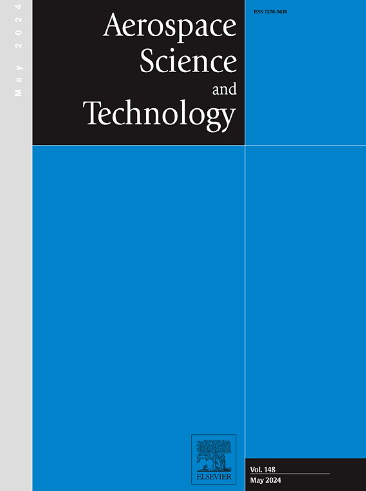Optimal fault-tolerant control of reusable launch vehicle with actuator faults using zero-sum differential game theory
IF 5
1区 工程技术
Q1 ENGINEERING, AEROSPACE
引用次数: 0
Abstract
Due to the harsh conditions and the potential for system faults and disturbances, ensuring the reliability and stability of reusable launch vehicles (RLVs) during reentry is critical. Traditional control strategies often struggle to maintain performance in the face of actuator faults and unpredictable external disturbances. In this paper, a novel approach for optimal fault-tolerant control in the attitude control system of reusable launch vehicle in reentry phase is introduced. This approach incorporates the zero-sum differential game theory to effectively address faults in actuators and external disturbance. We represent these actuator faults and external disturbance as an unpredictable bias in opposition to the control mechanism. By solving the Hamilton-Jacobi-Isaacs (HJI) equation and employing the Nash-Pontryagin minimax principle, we derive both the optimal control strategy and the maximum limit for the bias signal, thus attaining a Nash equilibrium saddle point. The estimation of the ideal cost function in real-time is executed via an adaptive critic neural-network, which utilizes adaptive dynamic programming method to formulate an adaptive control strategy. This method guarantees the stability and accuracy of the tracking performance, as well as the confinement of error margins within the attitude management system. Simulation results validate the efficacy of our proposed strategy for fault-tolerant control.
求助全文
约1分钟内获得全文
求助全文
来源期刊

Aerospace Science and Technology
工程技术-工程:宇航
CiteScore
10.30
自引率
28.60%
发文量
654
审稿时长
54 days
期刊介绍:
Aerospace Science and Technology publishes articles of outstanding scientific quality. Each article is reviewed by two referees. The journal welcomes papers from a wide range of countries. This journal publishes original papers, review articles and short communications related to all fields of aerospace research, fundamental and applied, potential applications of which are clearly related to:
• The design and the manufacture of aircraft, helicopters, missiles, launchers and satellites
• The control of their environment
• The study of various systems they are involved in, as supports or as targets.
Authors are invited to submit papers on new advances in the following topics to aerospace applications:
• Fluid dynamics
• Energetics and propulsion
• Materials and structures
• Flight mechanics
• Navigation, guidance and control
• Acoustics
• Optics
• Electromagnetism and radar
• Signal and image processing
• Information processing
• Data fusion
• Decision aid
• Human behaviour
• Robotics and intelligent systems
• Complex system engineering.
Etc.
 求助内容:
求助内容: 应助结果提醒方式:
应助结果提醒方式:


